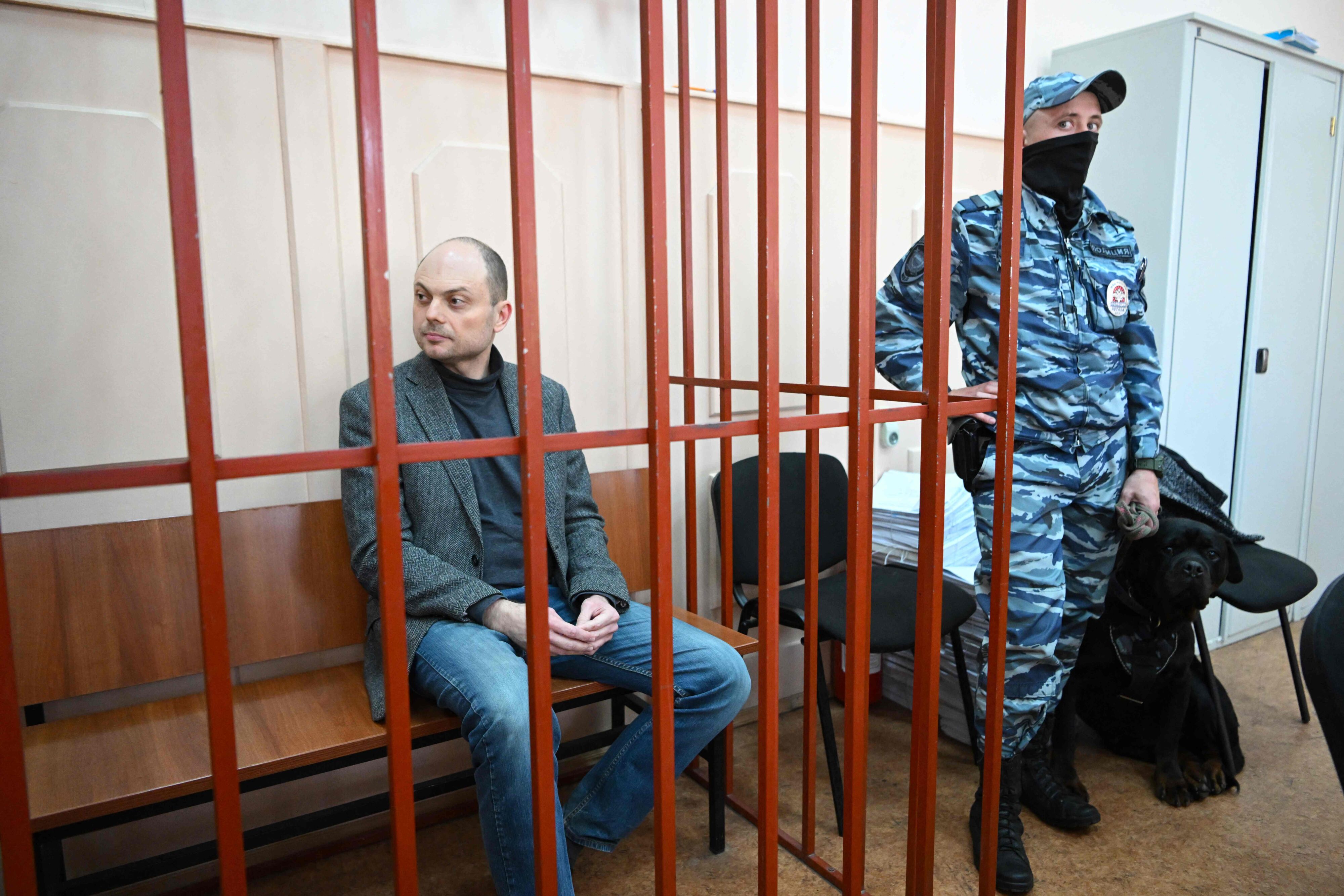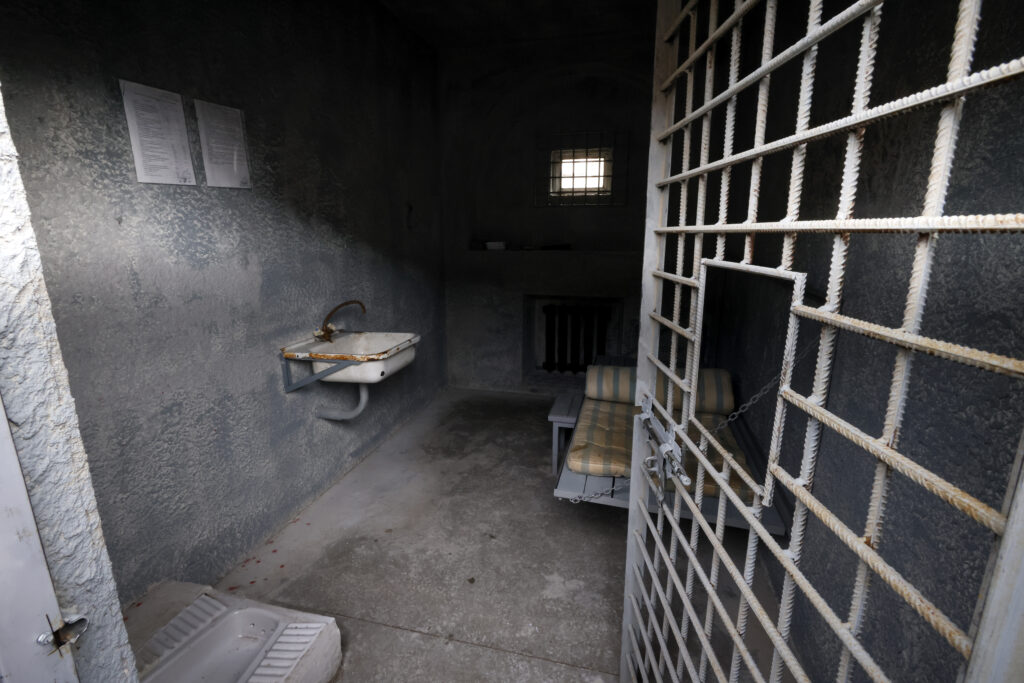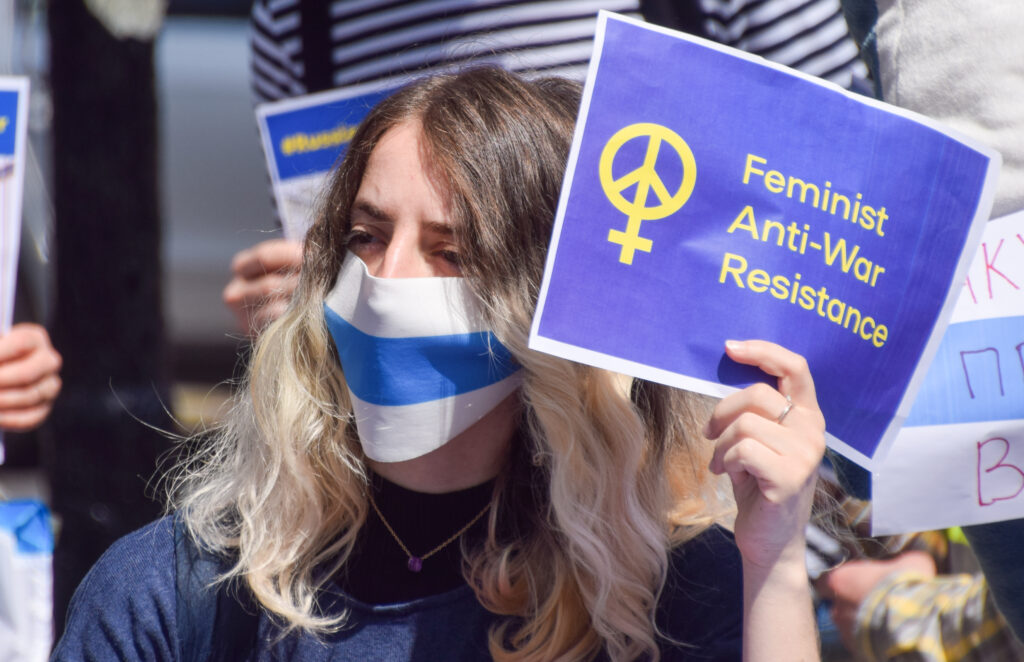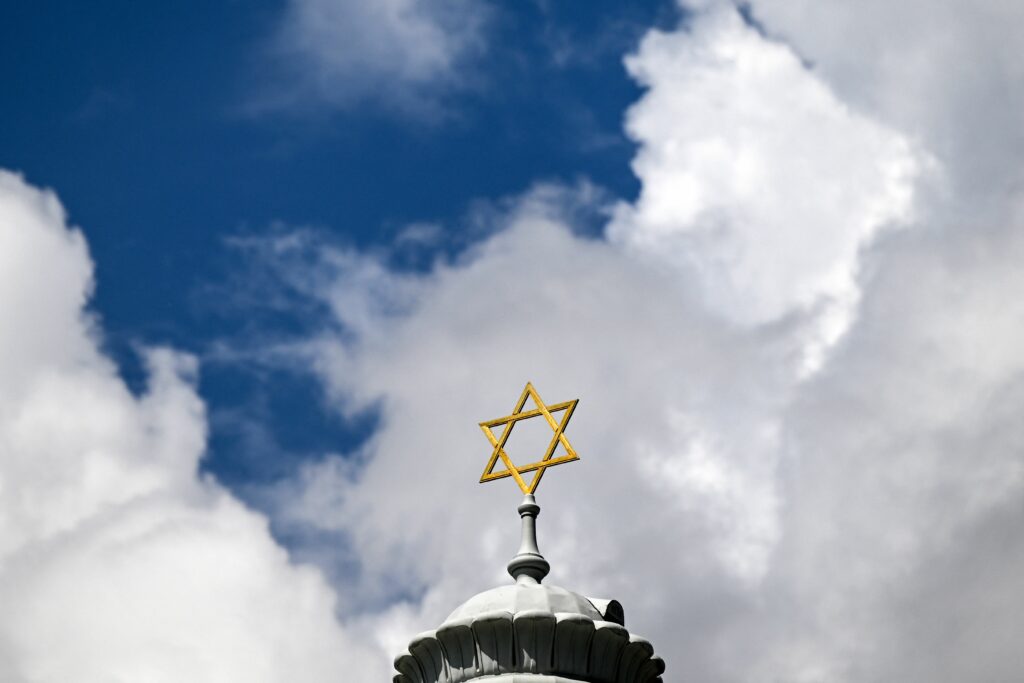In summing up the year, allow me to undertake the difficult task of drawing attention to the human rights situation in Russia against the backdrop of the war in Ukraine. Thousands of detainees, hundreds of political prisoners, repressive new laws, savage rhetoric on the part of government officials who openly deny human rights — everything that would have attracted the world’s attention yesterday is off the radar today. The developments within the aggressor country are understandably overshadowed by the terrible catastrophe that Russia has forced upon Ukraine.
Although the tragedy in Ukraine is incommensurable with what is happening in Russia, one is closely linked to the other. The mass suppression of human rights and freedoms and the ever-increasing scale of repression at home not only paved the way for a war of aggression but also ensured that it would continue.
When experts summarised the year 2021 a year ago, many spoke of the worst year for human rights in Russia. The level of repression seemed excessive compared to the authorities’ function of controlling Russian society. As it turned out, the events of the past year — i.e. the imprisonment of Navalny and Pivovarov, the labelling of the FBK (Navalny’s Anti-Corruption Foundation) as an extremist organisation, the closing down of Memorial, dozens of new prohibitive and punitive laws — were all harbingers of the war to come. All the manifestations of the crackdown on human rights in Russia in 2022 were also driven by the war.
New laws that further restrict human rights, introduce new offences, expand the scope of existing legislation and toughen punishments are so vast that I will have to limit my overview of them to the most notable and significant amendments.
The new Articles 207.3 and 280.3 of the Criminal Code and Article 20.3.3 of the Code of Administrative Offences banned any public expression of anti-war views immediately after the hostilities started.
Article 284.2 of the Criminal Code and Article 20.3.4 of the Code of Administrative Offences prohibit calls for sanctions against Russia as a whole as well as against Russian organisations and citizens.
Article 280.4 of the Criminal Code penalises public calls for a wide range of actions (believed to undermine the security of the Russian Federation), further criminalising public debate.
The penalty under Article 284.1 of the Criminal Code for running so-called undesirable organisations was made more severe, and the scope of corpus delicti was expanded.
Article 275.1 of the Criminal Code introduced punishment for ‘cooperation on a confidential basis with a representative of a foreign state, international or foreign organisation’.
The new Article 284.1 of the Criminal Code introduced penalties for repeated displays of prohibited symbols, such as those of extremist organisations. It is worth recalling that Russian law enforcement considers ‘Smart Voting’ symbols, among others, to be extremist.
The war also justified a large body of new legislation which introduced new types of corpus delicti and harsher penalties for previously specified crimes concerning state defence contracts as well as military crimes. One of the most outrageous examples includes the new Article 352.1 of the Criminal Code, which criminalises voluntary surrender.
Towards the end of the year, regulations were adopted that call for the prosecution of anyone involved in activities related to sabotage, including justifying and promoting sabotage.
A new law gave the authorities a free hand in assigning the status of foreign agent and introduced new restrictions on those blacklisted. A recent order by the FSB effectively banned any discussion of the course of the so-called special military operation under the threat of being declared a foreign agent.
Despite the ban on public events that has been in place in practice since the beginning of the COVID-19 pandemic, new restrictions were introduced as to where public events may be held. For example, they may not be organised in the vicinity of government agencies.
Administrative punishment was introduced for the so-called promotion of non-traditional sexual relations and gender transition among adults.
The ramp-up of repression in 2022 served to supress not only any anti-war protests but also any manifestation of dissent. According to OVD-Info, almost 20,000 people were detained in 2022 for their anti-war stance, and more than 5,500 were held administratively liable on charges of discrediting the Russian Armed Forces. Criminal cases were instigated against 392 individuals, and at least 120 of them have already been imprisoned. It is noteworthy that about 170 people are being prosecuted under the new ‘anti-war’ Articles 207.3 and 280.3 of the Criminal Code. More than 30 different charges, ranging from the habitual (violence against a government official) to the exotic (desecration of burial sites), were used as instruments of persecution in other cases.
The number of political prisoners on the lists of Memorial’s ‘Support for Political Prisoners’ Programme grew from 430 to 516. While the absolute figures are admittedly incomplete, this increase gives an idea of the general dynamics of political repression. However, this year’s estimate of the increase probably indicates only the tip of the iceberg. There is every reason to believe that a significant number of new victims of political repression remain unknown; we have repeatedly come across a situation where a political prisoner known to us and held in a regional pre-trial detention centre reported several other potential political prisoners.
But even if one assumes that the real figures are three to four times higher than those recorded by human rights defenders, the scale of repression remains at least an order of magnitude lower than, for example, in Belarus, where there are about 1,500 political prisoners in a country with a population of just over 9 million.
It is clear that there is enormous potential for repression in Russia to be ramped up even without the establishment of new legal instruments. On the one hand, it appears that repressions escalate by inertia; the flywheel of the repressive machine requires new victims, building on what has been achieved so far. The most notorious example is the persecution of Jehovah’s Witnesses, which remains intense and apparently has no rational purpose from the authorities’ point of view. Repression, on the other hand, is functional: it serves the purpose of exercising control over society. In this sense, its escalation is a response to real or alleged threats. Wartime social turbulence has created new threats to the authorities, but so far they have managed to contain them without mass repression. If the situation gains momentum and new threats emerge, the regime has means to respond.
An important feature of the repressive practices of the past year was the unprecedented speed at which the props of democracy and the rule of law were abandoned. This trend was also generated by the war. The very act of treacherous armed aggression in violation of all norms of international law, accompanied by official rhetoric justifying the hostilities, left little room for appeals to democratic values. Russia’s exclusion from the Council of Europe eliminated any formal need for declarations of allegiance to these values.
This abandonment of democratic and legal window dressing can be traced at different levels. At the level of legislation, for example, it manifests itself in the criminalisation of the so-called discreditation of the Russian Armed Forces or in the openly discriminatory ban on propaganda of ‘non-traditional sexual relations’. At the level of law enforcement, it can be observed in the practice of applying Article 207.3 of the Criminal Code, which criminalises ‘fake news’ about the armed forces and which has effectively abolished the presumption of innocence: a defendant charged under this article is not only forced to prove their innocence — since the investigation and the court can prove their guilt by disclosing inconsistencies in information shared by them compared to that reported by the Ministry of Defence (MoD) — but is in fact denied an opportunity to do so because of the irrefutable presumption that the MoD’s reports are true.
There have been numerous examples of masks slipping. These include the endless absurd sanctions against Alexei Navalny and the conviction of Andrey Pivovarov, who allegedly organised the activities of an ‘undesirable organisation’ by posting perfectly legitimate information on Facebook without mentioning this organisation. Other instances include the conviction of Alexei Gorinov, sentenced on charges of ‘disseminating knowingly false information’, although his words did not contain any allegations of facts challenged by the Russian authorities at all. Also, Bakhrom Khamroev, a member of Memorial, was charged with organising the activities of a terrorist organisation by preparing appeals to the European Court of Human Rights and the authorities in Russia and other countries, and compiling a report on human rights violations in Uzbekistan. This punitive impudence manifested itself in the most blatant way in the criminal prosecution of Vladimir Kara-Murza. The charges for all three of his alleged crimes (‘disseminating false information’ about the Russian Army, carrying out activities of an undesirable organisation and high treason) are based solely on his public speeches and actions. On the one hand, the prosecution in Kara-Murza’s case are not even trying to disguise the fact that their purpose is to take revenge on him for criticising the authorities. On the other hand, the three absurd charges, which are clearly redundant in functional terms (from the point of view of both isolating Kara-Murza and giving a signal to society), are nothing but a manifestation of the authorities’ vengeful spite.
The arbitrary blacklisting of the Viasna movement as extremist and the intention to close down the Moscow Helsinki Group under even more absurd allegations than those used against Memorial a year ago fall under the same category.
Finally, the same trend can be seen in the increasingly frequent rejection of the norms of statute law, as in the case of the enlisting of convicts into private military companies, extrajudicial executions, and the detention of those who refuse to fight in illegal prisons. The notorious statement of Senator Klishas, who put Putin’s words above the law, is indicative of this approach.
Another aspect of the trend is the ongoing ideologisation of repression, the increasingly frequent persecution for showing disrespect for the symbols and tenets of the regime, ranging from the role of the USSR in WWII and veterans to the FSB and Vladimir Putin personally. The anti-war legal provisions mentioned above, the ban on ‘LGBT propaganda’, the updated ‘foreign agent’ legislation, the most recent recognition of the ribbon of St George as a symbol of military glory protected by the Criminal Code and many other 2022 novelties are purely ideological in nature. Equally ideological are instances of the dramatic crackdown on dissenters based on charges of the so-called rehabilitation of Nazism and, in many cases, calls for extremism and justification of terrorism.
Notably, the aforementioned trends are accompanied by the ostentatious brutality of repression, which manifests itself in insane sentences (the cases against Gorinov and Yashin), in the growing severity of criminal penalties under many articles of the Criminal Code, and in the increasingly widespread use of serious terrorist charges against dissenters. Finally, violence and torture have become routine, as illustrated by the egregious cases of the detained participants of the Mayakovsky Readings or those accused in the ‘Tyumen case‘.
The above-mentioned examples showcase only those aspects of the human rights violations that are in one way or another connected with the repressive activities of the authorities. The almost complete elimination of independent media in Russia, the blocking and banning of social media outlets and hundreds of thousands of other websites, and the sweeping violation of citizens’ rights during mass conscription deserve separate analyses. The violation of the rights of Ukrainian prisoners of war and civilians abducted from the occupied territories, including thousands of children, should also be discussed separately.
Given such a disaster, including the tragic situation with human rights in Russia in 2022, successes and achievements such as the acquittal of Yulia Tsvetkova bring little solace. Still, it is important that we have been witnessing mass resistance to war and dictatorship in many forms against the backdrop of this disaster. Resistance has triggered more repression. Equally important is the emergence of dozens, if not hundreds, of public solidarity initiatives uniting both those who have fled Russia and those who have stayed. These networks of solidarity and support aim to help refugees, political prisoners, those trying to escape conscription and many others.










